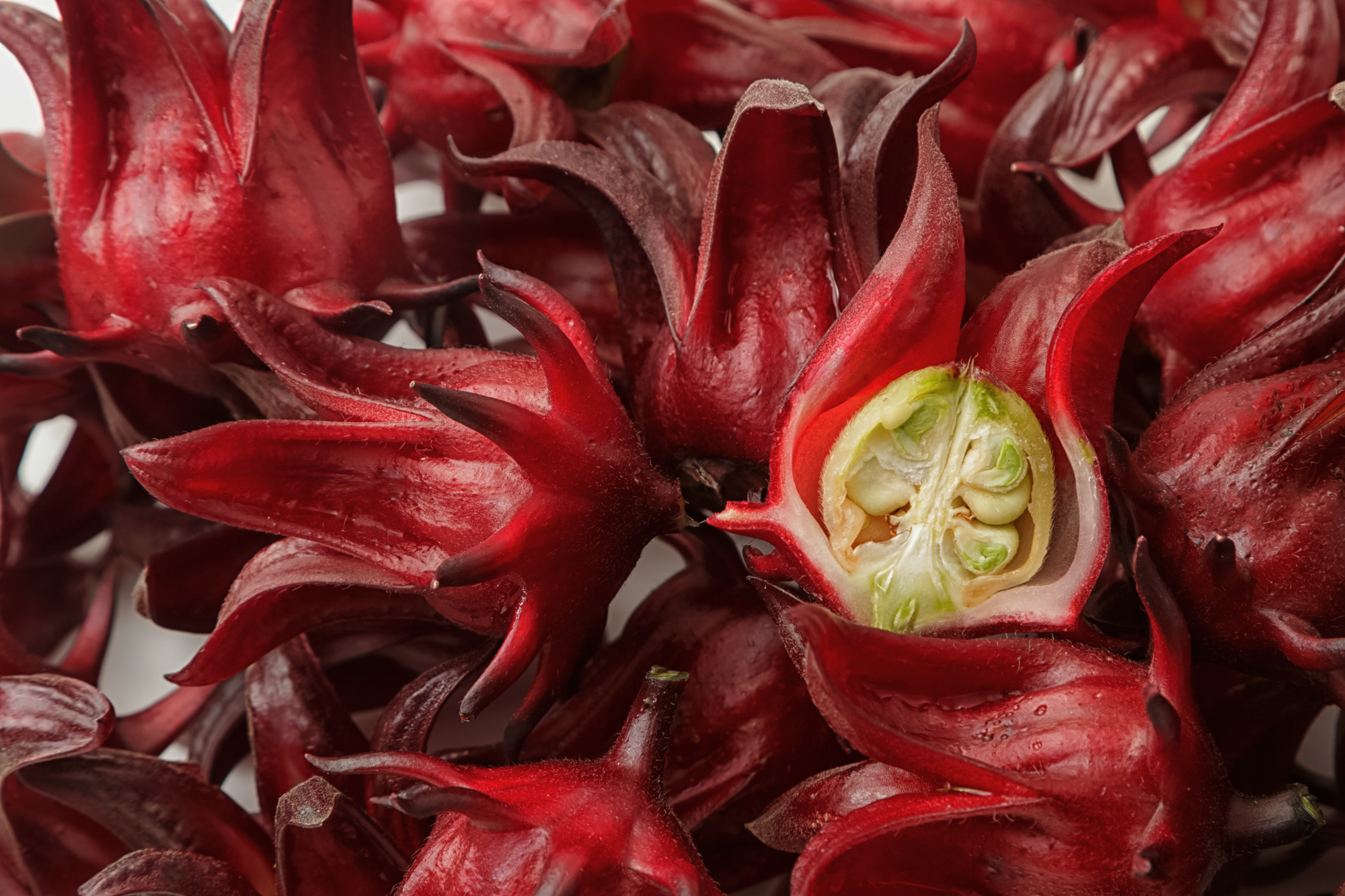




Clinically tested
to support women’s urinary tract health⁴
100% natural
hibiscus extract
Inhibitory effect
on E. coli (In vitro)¹
Complementary
to cranberry-based solutions to support women’s urinary tract health


According to the NIH, issues associated with urinary health can disrupt day-to-day life. When people have urinary health issues, they may limit social interactions and have a harder time getting tasks done at home or at work. Management for urinary health issues may include behavioral and lifestyle changes, exercises and others.² Dietary supplementation may help support urinary comfort. In a category dominated by cranberry products, Ellirose™ offers a unique mechanism to support urinary tract health. Cranberry has an anti-adhesion action, minimizing the binding of E. coli to the bladder wall and therefore inhibiting its ability to infect the mucosal cells of the urinary tract.³ Conversely, the hibiscus extract used in Ellirose™ demonstrates an inhibitory effect on E. coli ¹ ⁴ which is complementary to the anti-adhesion activity of cranberry ingredients.

The hibiscus used for Ellirose™ is grown and harvested in Africa with a strong commitment to sustainability, in accordance with the principles of our Sourcing4Good programme, which promotes responsible practices across our supply chains, while improving both producer livelihoods and the environmental impactts of our products.












In vitro studies have shown that dried Hibiscus sabdariffa calyx – the leafy casing that protects the flower bud – demonstrates strong and rapid inhibitory activity in vitro against E.coli. In just 24 hours, the E.coli content of the growth medium was reduced by 5 log.⁴ It’s also been found to work as an inhibitory agent against Candida albicans, which is a common cause of urinary discomfort.⁵
A randomised, double-blind, placebo-controlled study was conducted in forty women ages 26-48 with a history of recurrent urinary discomfort.⁴ Women who consumed 200 mg of Ellirose™ daily showed a significant decrease of 56% in urinary symptoms compared to the three months before the study started (p<0.01). Over a period of six months, the efficacy of Ellirose™ was further enhanced, as signified by a decrease in the incidence of symptoms of 89% (p<0.01).






Our hibiscus is cultivated from seed to calyx. It’s grown in Nigeria and Burkina Faso and harvested from November to February, with sustainable, traditional techniques employed throughout the process. No pesticides are used during farming as the hibiscus is mainly grown by small farm holders that are taking great care of their cultivation plots. Animal traction is used for plowing, and harvesting is done by hand, with the crop drying naturally in the sun.
The hibiscus used to create Ellirose™ is carefully monitored at the origin, with many field visits during cultivation and harvest, as well as inspection upon arrival in our processing facilities. This ensures we get the highest quality needed for our applications.

















Generally considered healthier and more nutritious than the other main cereals, oats offer a full range of benefits in a single ingredient. OatWell™ can be provided in three different concentrations of beta-glucans, all delivering both soluble and insoluble fibres, along with an average of 21% - 23% protein.
OatWell™ uses a unique production process to fractionate the oat kernel into three product lines: beta-glucan products, oat flours, and oat oils. Our production process preserves the native structure of oat beta-glucans, retaining their high molecular weight during fractionation into oat brans with a high amount of beta-glucans.


The molecular weight of oat beta-glucan is essential to delivering health benefits. OatWell™'s beta-glucan has a very high molecular weight (2000-2500 kDa as naturally found in oats), which contributes to its unique viscosity and thickening properties. This viscosity has an important impact on physiological functions, such as reducing blood cholesterol levels, moderating blood glucose and insulin levels, and potentially benefiting satiety.
Benefits of OatWell’s high molecular weight:







The prebiotic effects of oat bran fibre have been validated through years of research. In a review by Malkki and Virtanen, they cite: “in the large bowel, soluble dietary fibre increases the fermentation activity, especially production of butyric acid, enhances growth and colonisation of some probiotic bacterial strains, increases production of microbial mass and thereby aids the removal of nitrogen via faeces. It also increases wet weight of stools, thereby alleviating constipation”.²¹
Research conducted on oat beta-glucan demonstrates that it meets three important criteria, confirming its status as a prebiotic fibre:¹ ²




